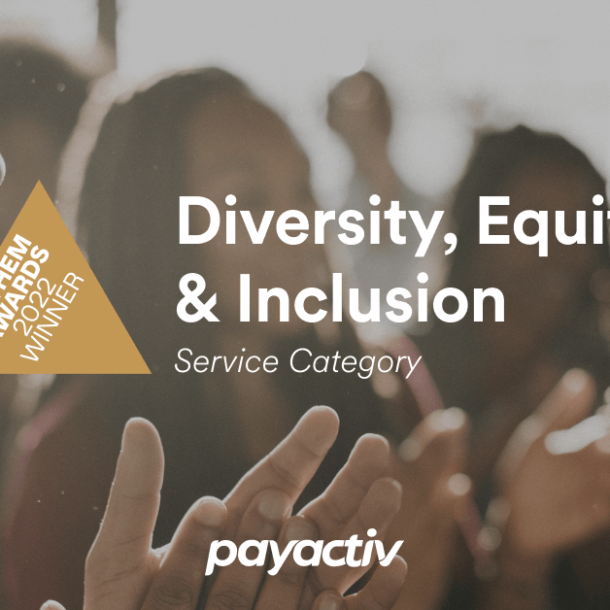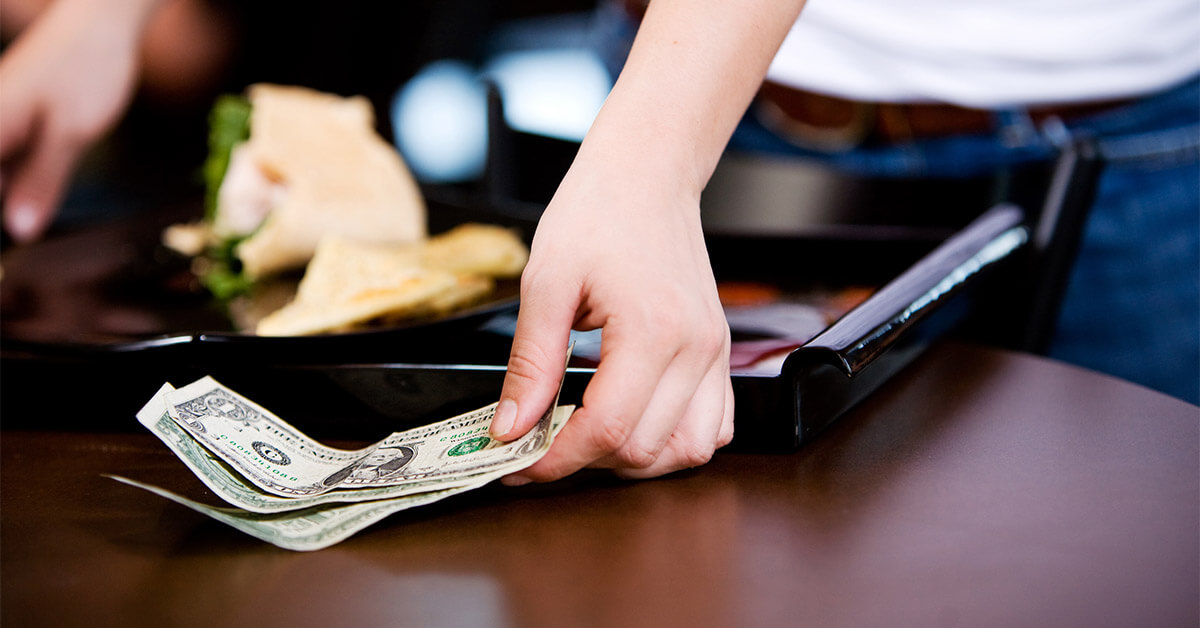
3 Ways to Make Hotel Staff Enjoy Their Stay
Hotel patrons are often told to “enjoy their stay”, but do the hard-working people behind the front desks that serve these patrons also enjoy their stay? Thousands of hotel employees ask themselves this question every year and the resounding answer is “no”.
According to the Bureau of Labor Statistics, in an average year, the hospitality industry has a typical turnover rate of 73.8%. While this number may surprise some, the numbers have been even higher in recent years due to pandemic trends. In April of 2020, unemployment numbers in the hospitality industry reached 37.3%, and in the fall of 2021 the hotel industry had 1.74 million fewer jobs filled than it did in the winter of 2020. To put it in perspective, a staggering 6% of staff are quitting every month.
To fill all these empty positions hotel executives need to look at the reasons behind low recruitment rates and identify how to attract new candidates and rehire former employees. Let’s dive into that and several solutions that reduce turnover, bolster retention, and increase recruitment efforts.
Where Have the Hotel Workers Gone?
Workers in the hotel industry have always faced long hours, intense work, and low compensation. However, ongoing health risks and understaffed workforces have pushed many employees over the edge. This has sparked national walkouts and strikes that have left many hotels without workers. In November of 2021, a record number of the hotel workforce canceled their stay with their employer.
“There have been weekends where I’ve had to let rooms go vacant because we didn’t have enough people to clean them,” said Sloan Dean, chief executive of management company Remington Hotels (Marriott International Inc., Hilton Worldwide Holdings Inc., Hyatt Hotels Corp. and InterContinental Hotels Group PLC).
Of those that left, more than 50% stated they would never return to their old jobs and over 30% swore off the industry altogether. Workers choosing not to return to the hospitality industry and completely switching professions are actively revealing a number of reasons for their departure.
45% of former hotel workers pointed to low pay as the culprit for their leave. Hospitality workers make substantially less per hour than most major industries at under $20/hr. In 2022, that is a borderline unlivable amount of money to pay. In addition to low pay, 29% of hospitality workers also pointed to a lack of benefits as motivation to seek new employment.
Whether it is low compensation, lack of benefits, burnout, or health concerns, it’s safe to say workers that left were not alone in their decision. “In general, the pandemic created an opportunity for hospitality workers — many of whom were furloughed or lost their jobs — to reevaluate their employment situation and consider other career options moving forward,” says Kevin Harrington, CEO of Joblist.
Consider Investing In Employee Financial Health
As Albert Einstein said, “We cannot solve our problems with the same thinking we used when we created them.”
74% of hospitality employers have turned to technologies like cashless payment and digital communication to aid in things like booking, payment, and checkout amid the pandemic. These technologies not only help engage patrons, but they yield increased online revenue, customer service ratings, and a reduction in guest complaints. With such outward-facing rewards, it only makes sense for employers to look internally at their workforce and invest there as well.
In 2022, as many as 60% of companies are having difficulty recruiting and hiring new talent. As a result, 67% of hiring teams have recently introduced new recruitment technology into their process and payroll systems to start attracting more talent.
Technologies like on-demand pay and communication platforms for deskless workers are very easy to implement and offered at zero cost to the business. They offer infinite returns on investment by increasing recruitment and employee engagement while lowering turnover rates and should be on top of the list when considering employee benefits to offer in the hospitality industry.
Not only do these solutions bolster retention, but they also revolutionize antiquated payroll systems stuck in biweekly or similar pay periods and transition industries into the future. Below are 3 easy to implement solutions to consider that help with retention, recruitment, and engagement.
1. On-Demand Pay and Every Day Pay
On-demand pay, aka Earned Wage Access (EWA), is a cutting-edge benefit that integrates with HR systems and makes a portion of employees’ pay available from a mobile app as they earn it. This is a highly sought-after recruitment tool that gives employers and employees an edge.
80% of workers have found Earned Wage Access to be an essential part of their financial and emotional well-being during the Covid-19 pandemic and an excellent competitive advantage, simultaneously modernizing business and acting as a signal and incentive for younger candidates. Employees with EWA can access their pay, simply transfer it to a card or bank account and make payments, pick up cash from Walmart, use it directly for Uber, Amazon, or even pay bills directly in the app.
A staggering 95% of employees are interested in working for a company that offers EWA and companies that have implemented EWA have seen turnover reduced by 30%. Employers that offer other financial incentives like saving and budgeting tools, financial coaching, and discounts to provide guidance for employees also see upticks in recruitment and retention. With these benefits, users can begin setting money aside toward their goals and watch their savings grow each month. With 78% of Americans currently living paycheck to paycheck, including 9% of those who earn six-figures, it’s no wonder employees are seeking employers that provide such financial benefits.
Another financial benefit that hotels should consider is offering every day pay. In August of 2021, The Harris Poll found that 83% of employees believe they should get paid every day. Payactiv has an option for EWA that easily implements automated everyday pay at no cost to the employer or employee. Employees can schedule their pay to be automatically transferred after each shift to the Payactiv Visa® Card*. It’s a great benefit to offer when competing in a tough labor market and the growing gig economy.
2. A Communication Platform
After talent acquisition has been attended to, incorporating mobile solutions to ensure employees stay engaged is a great next step. It is also an easy way to transform the employee experience. Demand for mobile solutions is evident across all hourly-worker indebted industries from employer to employee. 60% of companies that rely on frontline teams want to centralize communication through a digital workplace.
White-collar and corporate businesses have had access to communication platforms like this for a decade now and it’s a smart idea for employers looking to recruit, retain, and engage to bring this technology into the hospitality fold for their employees.
The days of bulletin boards in break rooms are over. Newer generations are seeking more modernized methods of communication. Investing in such technology can be an excellent way to attract and engage younger workers in the hotel industry. Digital messages, social media-like communication, and apps available on employees’ mobile devices allow them to stay up to date and have consistent interactions with hospitality management.
If hotel workers had access to this platform at the start of the pandemic in 2020, employers could have communicated safety protocols more effectively, weekly updates, training modules and more. This could have engaged more employees and stabilized or significantly dropped the turnover rate.
“This means using digital messages, social media-like communication, and applications that workers can access from their mobile devices,” Ostrega said. “Using mobile technology, hospitality brands can seamlessly engage with their employees on topics such as scheduling, task management and training. Additionally, consistent interactions between hotel management and team members via a digital workplace platform can be foundational in helping young workers continue their career progression.”
While communication platforms benefit employees, they also play a substantial part in empowering the customer. The pandemic altered customer preferences for good and communication platforms that limit in-person services are preferential by 87% of customers. Not only that, but those same customers claim the inclusion of such technology will directly factor into their decision to stay at said business. On top of that, 57% of customers expressed a desire to digitally communicate with staff through smart phone technology. So, regardless of whether employers implement this technology to engage their employees or their patrons, communication is key.
3. Flexible Shift Scheduling
Hospitality workers, specifically younger generations, have established that flexibility is a priority to them. Over two-thirds said that having more flexibility makes them want to stay at their company longer, increases their job satisfaction, and improves their overall well-being and 78% of hourly workers said it’s an important factor when choosing an
employer. This has only been exacerbated during the pandemic. Every day workers pick up extra shifts to afford necessities or call out to take care of a family member or for an emergency. Communication platforms allow employees to do so in a more autonomous and flexible manner.
Hospitality employers looking to implement communication technology into their business should consider Payactiv Connect, a communication and employee engagement platform. Not only does Connect allow employers to send company announcements, provide DM and group chat messaging, but it also offers open shifts to employees. By doing so, Connect keeps workforces well informed and helps organizations react to change faster.
A Friendly Wake-Up Call
It’s clear that whether hotel executives choose EWA, communication platforms, or flexible shift scheduling, there are numerous technological solutions available to improve business. Aimbridge Hospitality, the world’s largest third-party hotel operator for nearly 1,500 properties, did just that by embracing Payactiv’s EWA technology.
“In this gig economy, adding Payactiv to our suite of benefit offerings for full-time and part-time associates allows us to be even more competitive in attracting and retaining the best employees, while providing pay flexibility and financial wellness our associates are seeking.” said Ann Christenson, EVP-Chief Human Resources Officer at Aimbridge Hospitality.
Willard “Bill” Marriot, Executive Chairman of Marriott International, said, “great companies are built by people who never stop thinking about ways to improve the business.” This should act as a wake-up call for hotel employers looking to change the current employment trends within the industry. We know that hotel patrons enjoy their stay on a regular basis through their five-star reviews online. Now, it’s time to provide hotel employees with the same experience patrons do.
Employers interested in looking into new employee benefit solutions discussed can book a demo here and learn more today!
* The Payactiv Visa Prepaid Card is issued by Central Bank of Kansas City, Member FDIC, pursuant to a license from Visa U.S.A. Inc. Certain fees, terms, and conditions are associated with the approval, maintenance, and use of the Card. You should consult your Cardholder Agreement and the Fee Schedule at payactiv.com/card411. If you have questions regarding the Card or such fees, terms, and conditions, you can contact us toll free at 1 (877) 747-5862, 24 hours a day, 7 days a week.
Get Payactiv for your business
Related Articles
Key takeaways: Automated cashless tips provide a secure and efficient way to...
The heart of every business is its employees, and these employees need to be...
February is Black History Month, a time to honor the rich history, vibrant...
© 2025 Payactiv, Inc. All Rights Reserved
24 hour support: 1 (877) 937-6966 | [email protected]
* The Payactiv Visa Prepaid Card and the Payactiv Visa Payroll Card are issued by Central Bank of Kansas City, Member FDIC, pursuant to a license from Visa U.S.A. Inc. Certain fees, terms, and conditions are associated with the approval, maintenance, and use of the Card. You should consult your Cardholder Agreement and the Fee Schedule at payactiv.com/card411. If you have questions regarding the Card or such fees, terms, and conditions, you can contact us toll-free at 1-877-747-5862, 24 hours a day, 7 days a week.
** Central Bank of Kansas City does not administer, nor is liable for earned wage access.
Payactiv holds earned wage access services (EWA) license number 2591928EWA with the Wisconsin Department of Financial Institutions.
Apple and the Apple logo are trademarks of Apple Inc., registered in the U.S. and other countries. App Store is a service mark of Apple Inc., registered in the U.S. and other countries.
Google Play and the Google Play logo are trademarks of Google LLC.
Galaxy Store and the Galaxy Store logo are registered trademarks of Samsung Electronics Co., Ltd.




